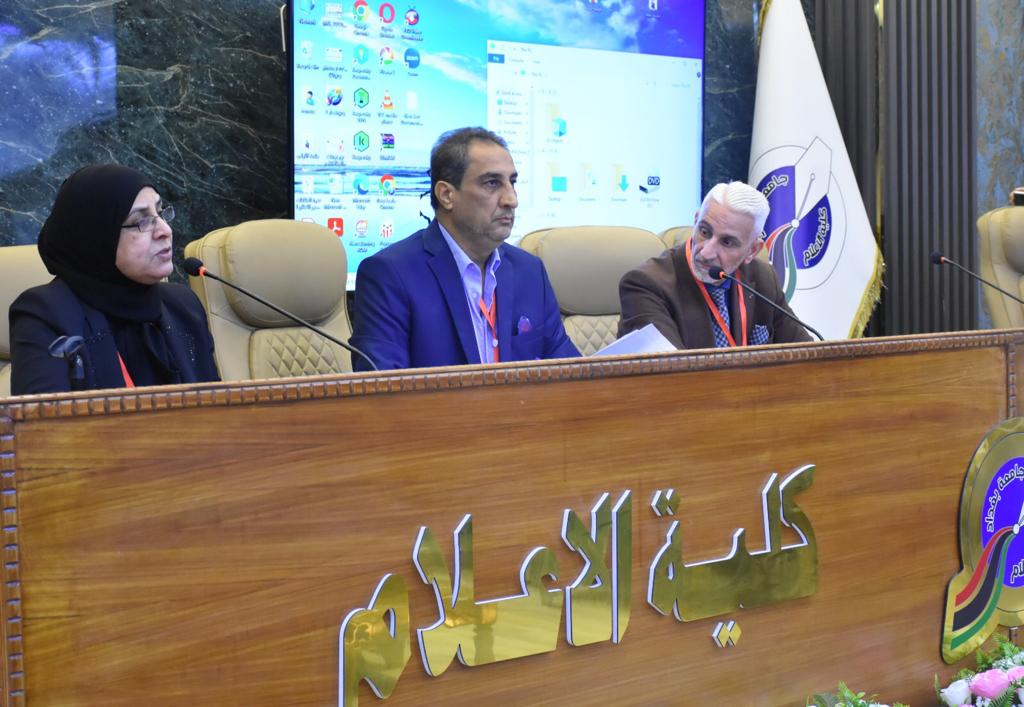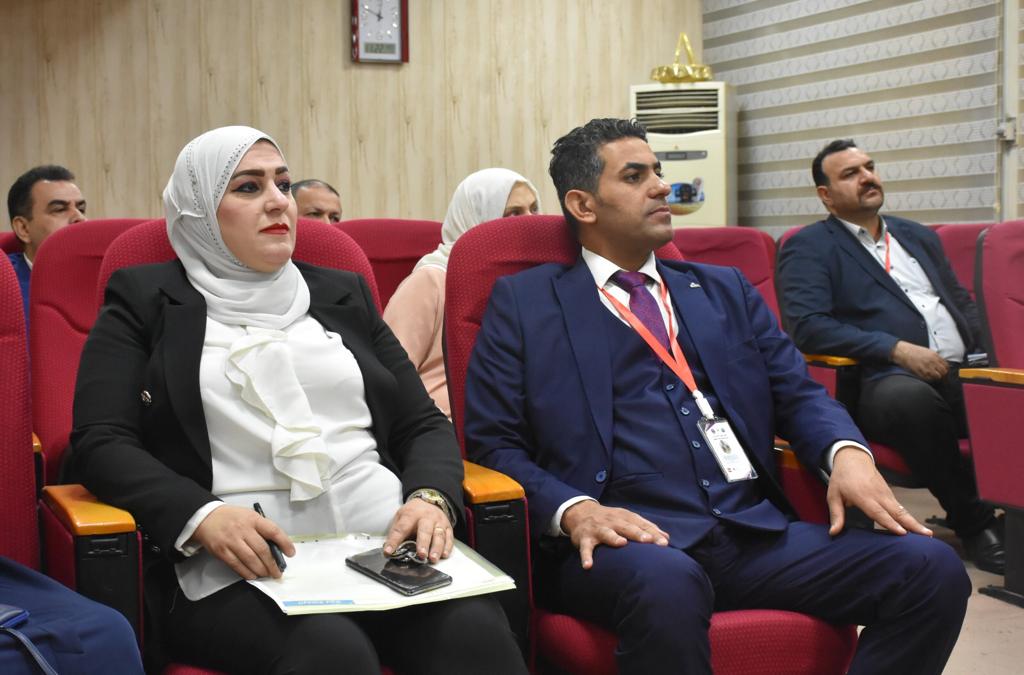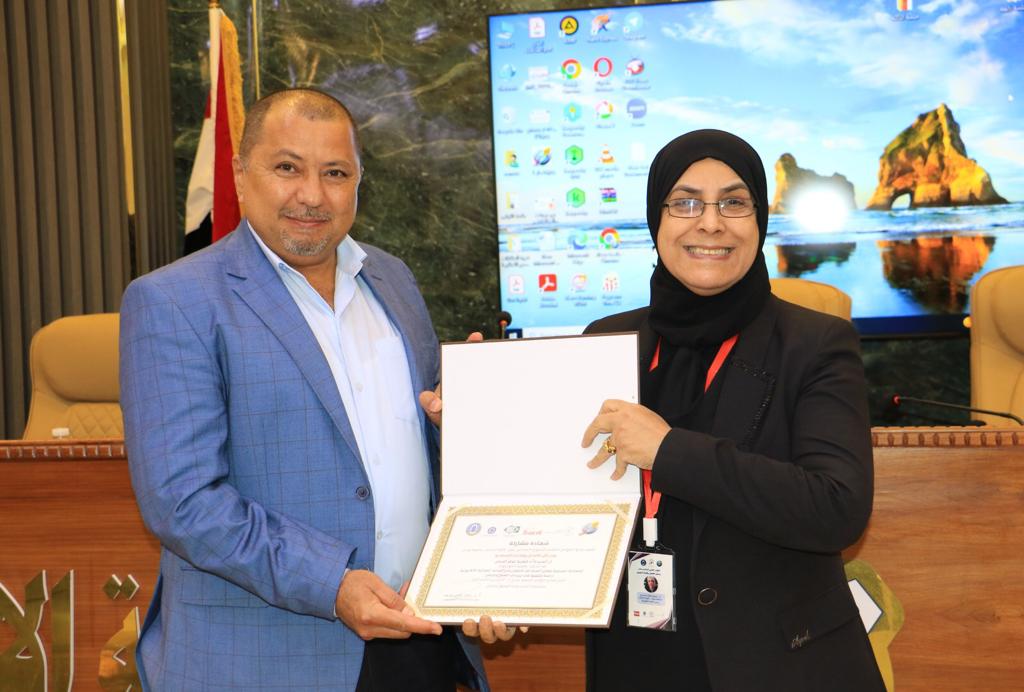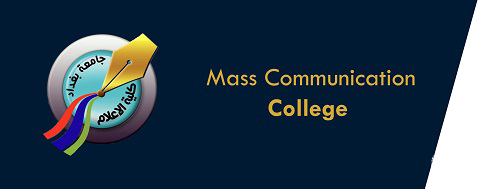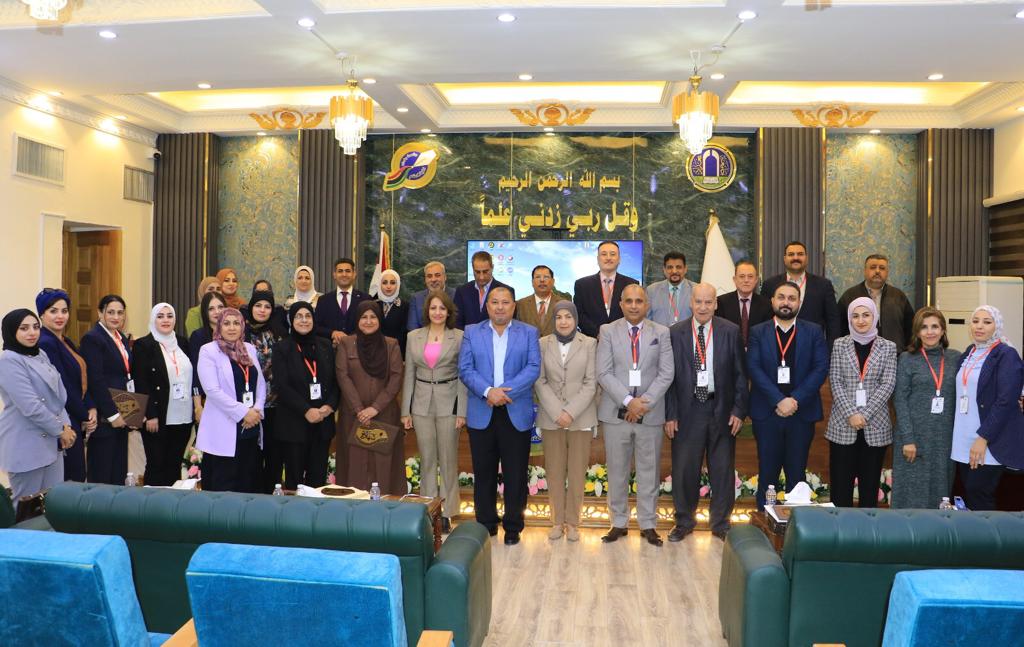The 16th annual conference of the College of Media at the University of Baghdad, themed “Media and social Issues,” witnessed diverse scholarly sessions addressing a wide range of social and media issues, representing the latest challenges and aspirations in Iraqi media environment.
Hosting prominent academics and experts in media field, the sessions revolved around intriguing topics, engaging in multiple perspectives and in-depth analyses of the challenges facing society, as well as the role of media to show its importance.
The sessions featured unique and innovative presentations covering various issues, from exploring the impact of book taking into account the effect of reading on Iraqi society for the purpose of analyzing the portrayal of social issues in foreign television series. Throughout the sessions, experts and academics discussed contentious topics such as audience interaction with social issues on social media, the reality of electronic extortion in Iraqi society, the impact of digital advertising on social media platforms, and several other related issues.
The first session, supervised by Professor Dr. Ali Jabbar Al-Shammary and chaired by Assistant Professor Dr. Nada Al-Ammar, included a presentation by the College’s Dean, Professor Dr. Amar Tahir Mohammed, on “The Role of Satellite Channels in Spreading Hope for Death Row Inmates.” Additionally, Assistant Professor Dr. Suhaim Hassan Ali Al-Shujairi discussed “The Ecology of Cartoons and the Language of Islamophobia in Western Media,” while Assistant Professor Dr. Alaa Al-Din Ahmed Khalifa presented “The Mechanism of Ethical Communication and the Negative Impact of Media Content
In the same context, the research contributions varied with Assistant Professor Dr. Nahla Abdul Razzaq Abdul Khaliq, addressing “The treatment of Iraqia TV channel for economic issues in Iraq.” Assistant Professor Dr. Wathiq Abbas Abdul Razzaq presented an article discussing “The contributions of digital platforms in addressing the phenomenon of sexual deviation in Iraqi society.” Dr. Yusra Hamza Ali and Assistant Professor Hind Saeed Aswad jointly focused on “The role of Iraqi security media in reducing the spread of inappropriate digital content on social media (TikTok).” Haneen Abdul Amir Khamash analyzed “The contents of the American press regarding the airport incident: A analytical study of articles published in the (New York Times) and (New York Post)” while Assistant Professor Ahmed Mahmoud Odeh explored “The role of media in promoting the national integrity system (NIS).” Researchers Dr. Adnan Abdul Hassan and Assistant Professor Ali Abdul Nabi Shanin presented a study on “Interactive advertising methods integrated with augmented reality in religious tourism and their organization using Geographic Information Systems (GIS) in the city of Karbala as a model.
In the second session held virtually via Zoom, chaired by Professor Dr. Irada Zaidan Al-Jubouri, and moderated by Assistant Professor Dr. Birq Hussein Jumaa, Dr. Hilal bin Ali Al-Rashidi presented on “Social Media Networks in the Sultanate of Oman: Patterns of Participation and Interaction.” Dr. Ismail Musa Al-Zanoun and Dr. Fares Salman Abu Shaheeh discussed “Communication Managers’ Trends in Gaza Municipalities Toward Employing Digital Media in Water Crisis Management.”
Assistant Professor Dr. Zahraa Issa Harem addressed “The Role of Journalism in Nation-Building,” and researcher Israa Naji Abdul Hafeez explored “The Role of Digital Media Campaigns in Supporting Sustainable Development Goals.”
These sessions highlighted the diversity of research in the field of media and communication, providing an opportunity for researchers to exchange opinions and ideas on important issues related to various cultures and societies.
On the second day of the conference, the third session, supervised by Professor Dr. Salem Jasim Al-Azzawi and moderated by Assistant Professor Dr. Zeina Abdul Khaliq, featured presentations that delved into various social and media issues in Iraq. Professor Dr. Raad Jasim Al-Kaabi started with “Indicators of Interest in Reading Books in Iraq,” followed by a discussion on “Approaches to Addressing Issues of what is known as the ‘Meme Society’ in Foreign TV Series” by Professor Dr. Bushra Dawood Al-Sanjari and Assistant Professor Dr. Sinehat Mohammed Aziz Al-Din.
The session continued with detailed presentations on different social and media issues in Iraq, including “The Treatment of Iraqi Press for Issues of Iraqi Society in the Face of Partisan and Cultural Pluralism” by Assistant Professor Dr. Nuh Azaddin Abdul Razzaq and “Audience Interaction with Social Issues on Social Media Platforms” presented by Assistant Professor Dr. Raya Qahtan Ahmed.
This session stood out for its diversity and depth in the presented content, reflecting a spirit of interaction and keen interest in topics that touch upon various aspects of the media and social reality in Iraq. Hosting the “Media and Social Issues” conference, the College of Media shed light on vital aspects of the interaction between media and social challenges. Researchers and scholars presented multiple perspectives, contributing to diverse and valuable discussions. The sessions addressed a range of challenges facing society today, emphasizing the role of media in sparking discussion and enhancing communication on these issues.
In concluding this conference, the vital role of media in conveying insights and analyses that contribute to building a more interactive and understanding society regarding its social issues becomes evident. These results represent a significant step toward promoting social change and deep understanding in our contemporary societies.
